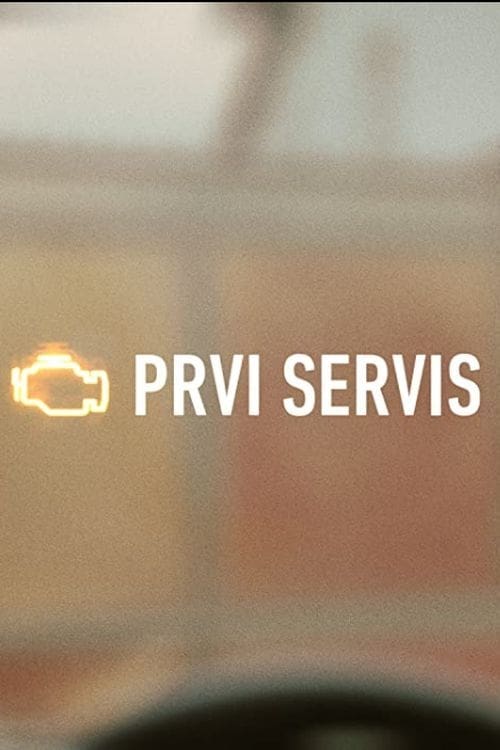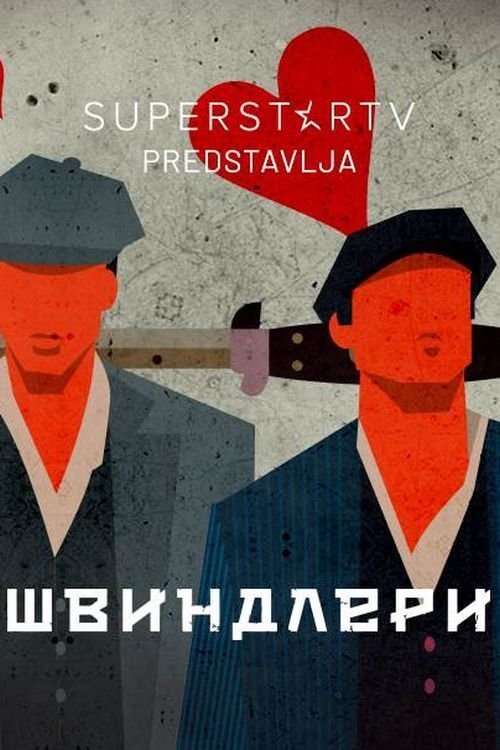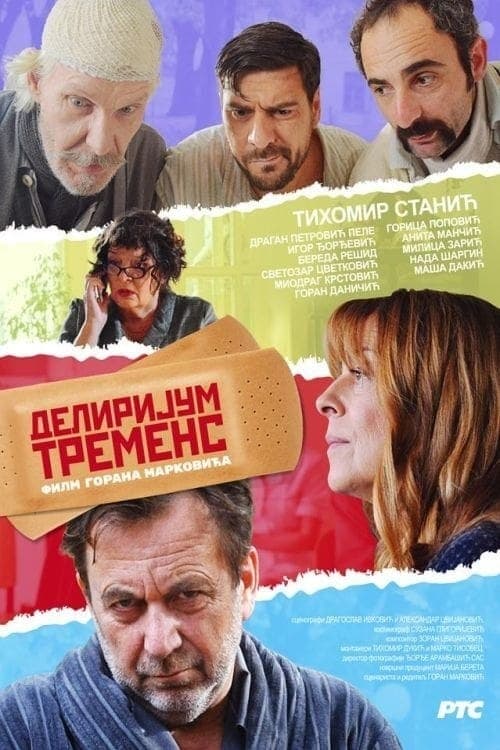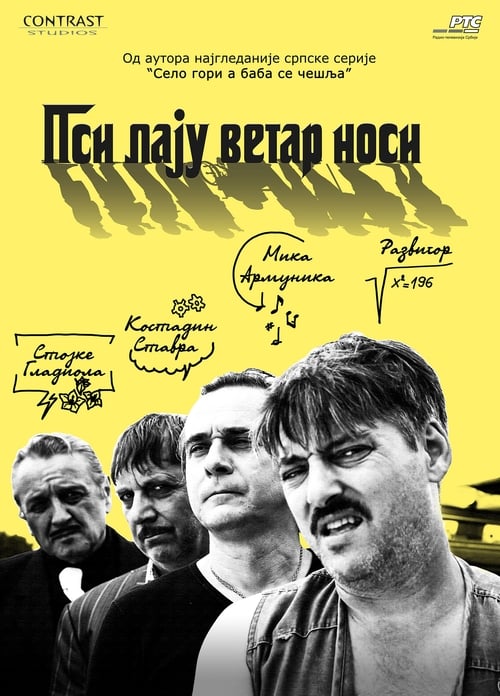
Ask Your Own Question
What is the plot?
The episode opens with a bustling household where the main character, a middle-aged woman named Mama, is preparing breakfast for her three adult sons. The kitchen is filled with the aroma of freshly cooked food, and the atmosphere is lively, with the sons joking and teasing each other. Mama, portrayed as a nurturing yet somewhat overbearing figure, is seen bustling around, ensuring everyone is well-fed and taken care of. Her sons, each with distinct personalities, exhibit a mix of affection and annoyance towards her constant attention.
As the breakfast progresses, the conversation shifts to Mama's health. She reveals to her sons that she has been feeling unwell and has been advised by her doctor to consider moving to a care home for better support. The sons react with shock and concern, each expressing their reluctance to let her go. The eldest son, who is more pragmatic, suggests that it might be a good idea for her to have professional help, while the middle son, more emotional, argues passionately against the idea, insisting that they can take care of her at home. The youngest son, caught in the middle, tries to mediate the discussion but ends up feeling overwhelmed by the tension.
After breakfast, Mama takes a moment to reflect on her life and the prospect of moving into a care home. She feels a mix of fear and sadness at the thought of leaving her home and her sons. The camera captures her expressions of vulnerability, highlighting her internal struggle as she contemplates her independence versus her need for assistance. This moment sets the emotional tone for the episode, showcasing Mama's deep connection to her home and family.
Later in the day, the sons gather to discuss the situation more privately. They each share their concerns about Mama's health and the implications of her moving out. The eldest son proposes a plan to hire a nurse to come to the house instead, believing this would be a compromise that allows Mama to stay in her familiar environment. The middle son is skeptical, fearing that Mama might still feel isolated and neglected. The youngest son suggests they should all take turns caring for her, but this idea is met with resistance as the others worry about their own responsibilities and time constraints.
As the day progresses, Mama overhears snippets of their conversation, which leads her to feel guilty for being a burden. She decides to take matters into her own hands and begins to pack a few belongings, preparing for the possibility of moving to the care home. This act of packing symbolizes her acceptance of the situation, but it also reflects her deep-seated fear of losing her family and independence.
In a pivotal scene, Mama confronts her sons about her decision to move. She expresses her feelings of inadequacy and her desire to not be a burden to them. The emotional weight of her words hits the sons hard, and they realize how much they have taken her presence for granted. This confrontation leads to a heartfelt discussion where each son shares their love for her and their fears about her moving away. They promise to do better in supporting her at home, and Mama, touched by their sincerity, begins to reconsider her decision.
The episode culminates in a tense yet emotional family meeting where they all agree to try the arrangement of having a nurse come in while also committing to spend more time with Mama. They discuss the logistics of this plan, and Mama feels a renewed sense of hope and connection with her sons. The episode ends on a poignant note, with the family sharing a warm embrace, symbolizing their unity and commitment to face the challenges ahead together.
What is the ending?
In the ending of "Mamini sinovi," season 1, episode 1 titled "Mama, ides u dom!", the family faces the emotional turmoil of sending their matriarch, Mama, to a care home. The episode concludes with a poignant farewell, highlighting the struggles of the family members as they grapple with their feelings of guilt, love, and the harsh realities of aging.
As the episode unfolds towards its conclusion, the scene shifts to the family home, where the atmosphere is thick with tension and sadness. Mama, visibly frail yet dignified, sits in her favorite armchair, surrounded by her three sons. Each son exhibits a different emotional response to the impending separation. The eldest son, Marko, tries to maintain a brave face, but his eyes betray his sorrow. He recalls fond memories of their time together, reminiscing about the warmth of their family gatherings.
The middle son, Luka, is more openly distressed. He paces the room, expressing his frustration and anger at the situation. He feels a deep sense of betrayal, believing that sending Mama away is a failure on their part. His internal conflict is palpable as he struggles to reconcile his love for his mother with the practicalities of her care.
The youngest son, Petar, is caught in a whirlwind of emotions. He oscillates between wanting to support his brothers and feeling overwhelmed by the weight of the decision. He attempts to lighten the mood with humor, but it falls flat against the gravity of the moment.
As the time for Mama to leave approaches, the family gathers around her, each son taking turns to express their love and gratitude. Mama, with tears in her eyes, reassures them that she will be okay, but her voice trembles with the weight of her own fears. She reflects on her life, sharing her hopes for her sons and urging them to take care of one another.
The final scene is heart-wrenching. As the car arrives to take Mama to the care home, the sons stand outside, watching helplessly. Mama turns to them one last time, her expression a mix of love and resignation. The car door closes, and the vehicle drives away, leaving the brothers standing in silence, grappling with the reality of their decision.
In this moment, the episode encapsulates the themes of familial duty, the challenges of aging, and the emotional complexities of love. Each character is left to confront their feelings of guilt and sorrow, setting the stage for the ongoing narrative of their relationships and the impact of this pivotal moment on their lives.
Is there a post-credit scene?
In the first episode of "Mamini sinovi," titled "Mama, ides u dom!", there is no post-credit scene. The episode concludes without any additional scenes or content after the credits roll. The focus remains on the main storyline and character developments throughout the episode, leaving no room for a post-credit moment. The narrative wraps up with the emotional tensions and conflicts established during the episode, particularly surrounding the family's dynamics and the mother's situation.
What motivates the main character to consider moving to a home?
In the first episode, the main character, Mama, grapples with her declining health and the increasing challenges of living independently. Her sons express concern for her well-being, which leads to emotional discussions about her future and the possibility of moving to a care home.
How do Mama's sons react to the idea of her moving to a home?
Mama's sons exhibit a mix of emotions regarding her potential move. Some are supportive, believing it to be in her best interest for safety and care, while others feel guilty and conflicted, fearing that they are abandoning her.
What specific events lead to the decision about Mama's living situation?
The decision is influenced by a series of events, including Mama's struggles with daily tasks, a minor health scare, and a family gathering where her sons confront the reality of her aging. These moments culminate in a heartfelt discussion about her future.
What role does humor play in the interactions between Mama and her sons?
Humor is woven throughout the episode, often serving as a coping mechanism for the family. The sons use light-hearted banter to ease the tension surrounding the serious topic of Mama's care, showcasing their love and concern while also highlighting the absurdity of their situation.
How does Mama feel about the prospect of moving to a home?
Mama experiences a whirlwind of emotions regarding the idea of moving. Initially, she feels resistant and fearful, perceiving it as a loss of independence. However, as the episode progresses, she also reflects on her safety and the practicality of the situation, leading to a complex emotional state.
Is this family friendly?
"Mamini sinovi," season 1, episode 1 titled "Mama, ides u dom!" is a family-oriented show that primarily focuses on the dynamics of a family dealing with various life challenges. However, there are a few aspects that might be considered objectionable or upsetting for children or sensitive viewers:
-
Emotional Tension: The episode explores themes of family conflict and emotional distress, particularly surrounding the idea of a family member moving to a care home. This can evoke feelings of sadness or anxiety.
-
Discussion of Aging and Care: The topic of aging and the implications of moving a loved one to a care facility may be difficult for younger viewers to understand and could be upsetting.
-
Family Disagreements: There are scenes that depict disagreements among family members, which may reflect real-life tensions that could be uncomfortable for some viewers.
-
Cultural Context: Some cultural references or familial expectations may not resonate with all audiences, potentially leading to confusion or discomfort.
Overall, while the show aims to address relatable family issues, the emotional weight of certain scenes may require parental guidance for younger viewers.




















